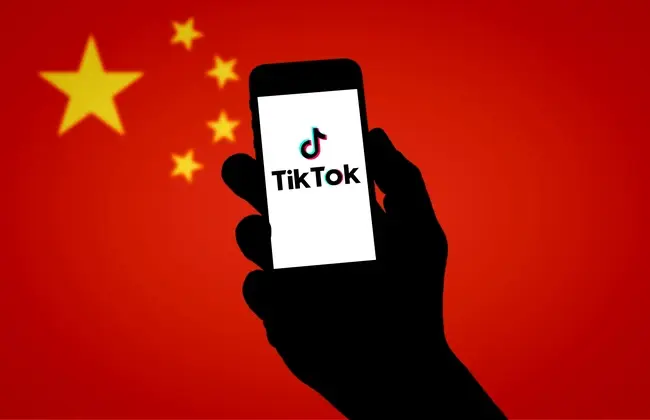The White House has given government agencies 30 days to remove video-sharing platform TikTok from all federal devices in a bid to safeguard US national data.
In guidance set out by Office of Management and Budget (OMB) director Shalanda Young, government agencies must “remove and disallow installations” of the social app, as well as any other apps created by TikTok’s parent company, ByteDance.
The ban does not apply if the app is being used for national security, law enforcement or security research purposes, but agency leadership must approve of these activities, Young’s memo read, and “blanket exceptions applying to an entire agency" are not permitted.

Congress passed the “No TikTok on Government Devices Act” in December last year as part of a government funding package following similar actions from Canada, the EU, Taiwan and more than half of US states. It gave the Biden administration 60 days to issue these agency directives.
Some government agencies such as the White House, Department of Defense, Department of Homeland Security, and the State Department had already banned TikTok from government devices before this deadline.
“This guidance is part of the Administration’s ongoing commitment to securing our digital infrastructure and protecting the American people’s security and privacy,” said Chris DeRusha, the federal chief information security officer.
"The Biden-Harris Administration has invested heavily in defending our nation’s digital infrastructure and curbing foreign adversaries’ access to Americans’ data."
“A spy balloon into your phone”
While impacting a small portion of Tiktok’s US user base, the ban comes at a pivotal point for the video-sharing platform, which has come under increasing scrutiny in Washington over its collection of US citizen’s data.
National security concerns about China have surged in recent weeks following reports that a Chinese surveillance balloon drifted over the US.
Multiple government officials are calling for the outright ban of the app across the country, fearing it is a threat to national security – a move described as a "critical step forward in addressing the risks presented by the app to sensitive government data," by the Office of Management and Budget.
House Republicans are expected to go ahead with a bill that would give president Biden the power to issue a nationwide ban on the app.
The federal TikTok ban goes into effect https://t.co/UysvXc7gXh
— Josh Hawley (@HawleyMO) February 28, 2023
The legislation, proposed by Representative Mike McCaul, would remove many of the challenges the administration would face in court if it went ahead with the sanctions against the social media company.
"My bill empowers the administration to ban TikTok or any software applications that threaten U.S. national security," Representative Mike McCaul, the committee chair, said.
"Anyone with TikTok downloaded on their device has given the (Chinese Communist Party) a backdoor to all their personal information. It’s a spy balloon into your phone.”
Bytedance-owned TikTok remains extremely popular around the world and is used by two-thirds of teens in the US. But there is ongoing concern that Beijing could exploit the popularity of the app to obtain control of Amercian user data.
The company has been dismissive of the ban on its app on federal devices and has noted that the developing security and data privacy plans are a patriot of the Biden Administration’s national security review.
TikTok spokesperson Brooke Oberwetter said on Monday: “The ban of TikTok on federal devices passed in December without any deliberation, and unfortunately that approach has served as a blueprint for other world governments. “These bans are little more than political theatre.”
The American Civil Liberties Union (ACLU) has expressed its opposition towards the ban.
A ban on TikTok would violate the First Amendment rights of millions of Americans who use the app to express themselves daily. pic.twitter.com/rCvCTMOza7
— ACLU (@ACLU) February 27, 2023
"Congress must not censor entire platforms and Americans of their constitutional right to freedom of speech and expression," ACLU senior policy counsel Jenna Leventoff said in a release.
"We have a right to use TikTok and other platforms to exchange our thoughts, ideas, and opinions with people around the country and around the world."
Blacklisted by the Public Sector
An increasing number of public sector organisations around the world have joined the US government in imposing bans on Bytedance’s video-sharing app.
Earlier on Monday, Canada announced a ban on TikTok from government-issued devices, saying the app presents an "unacceptable" level of risk to privacy and security.
The European Union's two biggest policy-making institutions last week also banned TikTok from staff phones, citing cybersecurity reasons.
“We have seen an increase in the number of global public sector customers, which includes schools and government agencies, block TikTok connections – over the second half of 2022 we saw it rise from 10 per cent to 65 per cent, Michael Covington, VP Portfolio Strategy at Jamf, told EM360.
TikTok has previously come under intense scrutiny from governmental agencies and data privacy experts due to its data-driven algorithm and incessant data harvesting.
To read more about data, visit our dedicated Data Management Page.
TikTok spokesperson Maureen Shanahan said that the app collects approximate location information based on users’ IP addresses to “among other things, help show relevant content and ads to users, comply with applicable laws, and detect and prevent fraud and inauthentic behaviour."
But Internal risk assessments conducted at ByteDance have previously demonstrated systemic issues with fraud and inappropriate data management within the company.
“Unless ByteDance makes substantial, sustained and rapid investments in its anti-fraud programs, it will likely be too late to prevent immense future fraud-related losses and liabilities – potentially including multi-billion dollar fines,” a summary of the internal assessment reviewed by Forbes reads.




Comments ( 0 )